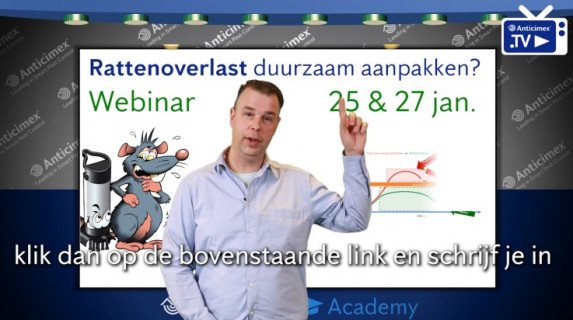Vele steden hebben de overlast van ratten beheersbaar gekregen met de Smart Rioolvallen. In deze webinar vertellen we waarom rattenoverlast toeneemt, waarom traditionele bestrijding vaak te kort schiet. Benieuwd welke Smart Cities al gebruik maken van de slimme oplossingen van Anticimex? Met Rando Kromkamp en Smart City Specialist Marcel Scheel. Kosteloos en anoniem
Smart Rioolvallen Webinar, Rattenoverlast meetbaar én effectief voorkomen





